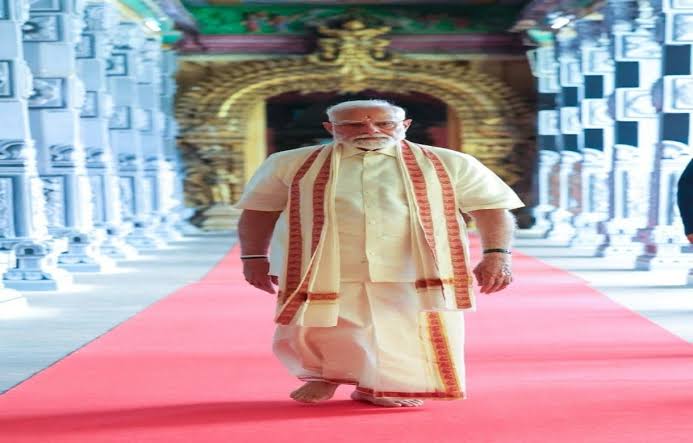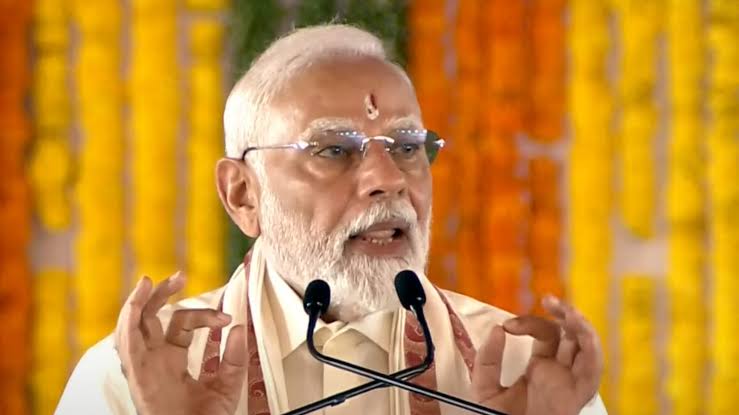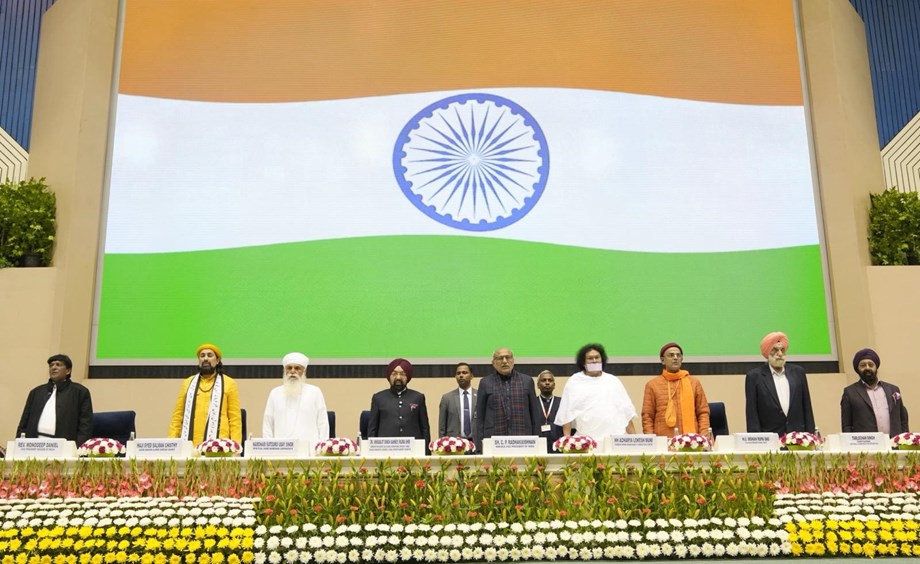During his visit to Rameswaram, Prime Minister Narendra Modi addressed a large gathering with a message aimed at both celebrating Tamil Nadu’s development and subtly critiquing its leadership. Without naming names, the Prime Minister appeared to target Chief Minister MK Stalin and his party, the DMK, suggesting a gap between their expressed pride in Tamil culture and the language they choose in official communications.
 In a speech filled with both data and emotion, PM Modi pointed out that under his government, Tamil Nadu has received three times more funds than it did during the tenure of the previous UPA government, of which DMK was a part. He also highlighted a seven-fold increase in the state’s railway budget, which now exceeds ₹6,000 crore. “Some people have a habit of crying unnecessarily,” he said, alluding to repeated requests and complaints from the state government regarding the release of central funds.
In a speech filled with both data and emotion, PM Modi pointed out that under his government, Tamil Nadu has received three times more funds than it did during the tenure of the previous UPA government, of which DMK was a part. He also highlighted a seven-fold increase in the state’s railway budget, which now exceeds ₹6,000 crore. “Some people have a habit of crying unnecessarily,” he said, alluding to repeated requests and complaints from the state government regarding the release of central funds.
The Prime Minister’s comments touched a sensitive nerve when he questioned why Tamil ministers, who often speak of Tamil pride, write their official letters to him in English. “Where is their Tamil pride?” he asked, noting that despite speaking about the importance of the Tamil language, these leaders continue to use English in their correspondence.
Modi’s speech also included mention of several welfare and infrastructure initiatives aimed at improving lives across the state. He cited figures to show that under central government schemes, over 12 lakh families in Tamil Nadu have received ‘pakka’ houses, and 1.1 crore households now have tap water connections—transformative changes especially for women in rural areas.
While PM Modi’s remarks resonated with many who feel national development should go hand-in-hand with cultural pride, they also come at a time of heightened political tension between the Centre and Tamil Nadu’s DMK-led government. Disagreements on policies like the National Education Policy, especially the three-language formula, have caused friction, with the DMK accusing the Centre of imposing Hindi and undermining regional languages.
The Prime Minister’s comments, though pointed, were delivered with a mix of statistical pride and rhetorical flair, aimed at stirring both awareness and emotion. They reflect a broader political narrative ahead of elections, where identity, development, and governance continue to intertwine in complex ways—especially in a culturally rich and politically aware state like Tamil Nadu.




